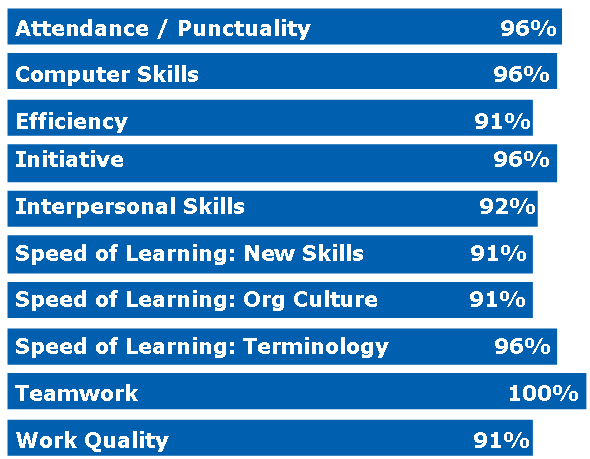Although employers and employees work together toward getting the job done, the expectations and the values each hold is not always communicated or clearly understood. It’s important to recognize this and be aware of some of these expectations.
For most of us, once we’ve learned our jobs, employers can expect us to perform our duties to the best of our abilities and work with some degree of independence and responsibility by:
– regulating our time without being reminded
– being the judge of our job performance on a day to day basis
– knowing how to behave at work
– handling our problems without letting them interfere with our work
We contribute our skills, our knowledge and our commitment to the workplace. In return, we can realistically expect to:
– receive adequate training
– be treated fairly and with respect
– have rules, policies and changes in our duties explained
– be told the expectations of us as workers
– be informed of things that affect us directly before, rather than after, the fact
– have tolerable and safe working conditions
– have a reasonable workload
– receive fair wages and benefits
– have a fair amount of control over the work we do
– given the opportunity to make suggestions and have them considered
– have our work fairly evaluated and to be given credit for it
– have a reasonable chance to use our knowledge, skills, training or experiences
– told where our work fits into the overall scheme of the organization
However, job dissatisfaction often results when we can’t meet several expectations. The most common causes of frustration and resentment stem from:
– poor communication between management and employees, including a lack of feedback to employees about their work
– too heavy a workload
– lack of recognition for the work done
– incompatibility of work values between employees and employers
– personality conflicts in the workplace that are difficult to resolve
– not having a sense of belonging, acceptance or importance as a person
Even though most employers want to meet the expectations of their employees, but rarely is an open discussion, the company may not be aware of those expectations. It is the responsibility of both employers and employees to communicate their expectations to each other.
Since supervisors and managers often set the overall tone of the workplace by making policies that affect the conditions and relationships of the workplace, it’s their responsibility to be aware of factors that contribute to a low-stress environment. We hope employers see that too much pressure, constant over-time or too little input into decision-making, is stressful for workers, but if they don’t, then it’s up to us as employees to make our concerns known to employers.
Advising employers of our concerns in a forthright, two-way discussion often prove to be the most successful method. It helps to keep in mind that employers and employees ultimately are working towards the same goal of getting the work done. Employers want to know if something is preventing us from doing our jobs.
Part of knowing what we can expect from ourselves, our employers, and our jobs, is knowing our reasons for working at our particular jobs right now. Is it a short-term job or a long-term one? How temporary or permanently do we want it to be? Are our expectations reasonable considering the nature of the job? Are we meeting some immediate needs such as:
– earning quick cash
– making enough money to go back to school, college, university or take further training
– getting back into the workforce
– gaining some particular work experience related to a future job
– having the kind of working hours we want
– working in a given location
Realizing what our jobs are about can make a difference in being able to accept our jobs or hardly coping with them. Often we can maintain a positive approach towards our jobs by transforming the work we do.
© Wordscapes® (David Turner). All Rights Reserved.




